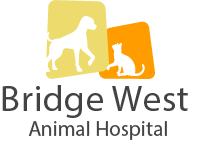Library
-
Olopatadine ophthalmic is an antihistamine medication used to treat pruritus (itchiness) of the eyes caused by allergies in animals. Olopatadine ophthalmic comes in liquid drop suspension form.
-
Omeprazole is given by mouth and is used off-label to treat ulcers and erosions in the stomach and upper small intestine. Give as directed. Side effects are uncommon but may include stomach upset, such as vomiting, diarrhea, or gas. Do not use in pets with a history of allergies to this class of drugs. If a negative reaction occurs, call your veterinarian.
-
Ondansetron (brand names Zofran®, Zuplenz®) is given by mouth or injection and is used off label in dogs and cats to treat vomiting. Side effects are not common but include constipation, sleepiness, or head shaking. Do not use in pets that are allergic to the medication.
-
Ophytrium is an ingredient extracted from Japanese mondo grass (Ophipogon japonicus) that is used in several topical treatments (i.e., Douxo® S3 products). It is used on dogs and cats with oily to flaky skin. It is believed to help control odor and dandruff, soothe and hydrate the skin, maintain the skin barrier, untangle the fur, and soften the coat.
-
Orbifloxacin is given by mouth and is used on and off label to treat certain susceptible bacterial infections. Give as directed by your veterinarian. The most common side effects include vomiting, diarrhea, and lack of appetite. Do not use in pets that are allergic to it or other quinolones, in growing pets, or in conjunction with cyclosporine. If a negative reaction occurs, please call your veterinary office.
-
Orbifloxacin + posaconazole + mometasone (Posatex®) is a combination topical ear medication that is used to treat bacterial and/or yeast ear infections in dogs. It comes as a liquid suspension that is applied topically to the affected ear once daily.
-
Oxazepam is given by mouth and is used off label to stimulate appetite and to treat behavior-related disorders. Give as directed by your veterinarian. Common side effects include sleepiness and drooling. Do not use in pets that are allergic to it or other benzodiazepines, nursing pets, or those that have glaucoma. If a negative reaction occurs, please call your veterinary office.
-
Oxytetracycline is an antimicrobial medication used to treat bacterial infections. It is used to treat infections in cats, dogs, and fish. It is used “off label” or “extra label” to treat bacterial infections in exotic animals. Oxytetracycline comes in oral tablet or compounded liquid forms.
-
Oxytetracycline/polymyxin B ophthalmic (brand name Terramycin®) is a combination antimicrobial medication used to treat certain types of bacteria (gram-positive and gram-negative). It is used to treat eye infections in cats and dogs. It is used “off label” or “extra-label” to treat eye infections in avian species, hedgehogs, and rabbits. Oxytetracycline/polymyxin B comes in ointment form.
-
Pancrelipase is given by mouth and is used on and off label to treat exocrine pancreatic enzyme deficiency in dogs, cats, and birds. It is also used to treat fur balls in rabbits. Give as directed by your veterinarian. Common side effects at higher doses include diarrhea, cramping, gas, or vomiting. Do not use in pets that are allergic to pork. If a negative reaction occurs, please call your veterinary office.


